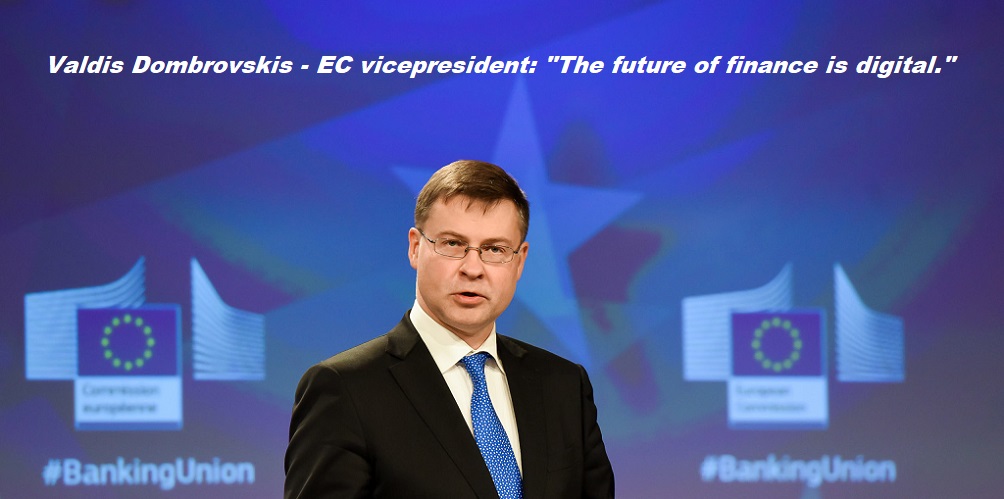
Press remarks by Executive Vice-President Valdis Dombrovskis on the Digital Finance, digital resilience and payments strategy.
DIGITAL FINANCE
Let me now move to digital finance. The future of finance is digital. During the lockdown, many people shifted to accessing banking and other financial services online. Many more made contactless payments.
Developing better financial products for consumers and opening new funding channels for companies will all help the recovery.
But digital transformation does not come without risks. So we are making sure to protect consumers while promoting innovation.
Our Strategy has four priorities.
First, to reduce the fragmentation in the Digital Single Market for financial services. This is important to give consumers access to better and cheaper services, and to help European financial firms grow successfully. We want passporting and one-stop shop licensing to apply in all areas of digital finance that have strong potential. We already did this for crowdfunding and today we are proposing the same for crypto-assets.
Second, to make EU rules fit for the digital age, thereby promoting financial innovation while mitigating risks.
Third, to create a European financial data space to promote data-driven innovation. Using data better in the financial sector will encourage competition between providers.
This is where Europe can become a leader, bringing cutting-edge financial products to consumers and companies. Next year, we will launch a comprehensive review of the Payment Services Directive – or PSD2 – so that EU consumers and companies can make the most of the full potential of “open banking”. Building on this, we will also propose new rules to promote open finance.
Fourth, to maintain equal conditions of competition between existing financial institutions and new market participants. Some emerging financial ecosystems are complex and need to be properly supervised. Our approach is based on the principle “same risk, same rules, same regulation”.
For example, when banks and other financial entities outsource activities to large technology companies – or when those companies sell financial products themselves.
We also have a proposal on crypto-assets which aims to allow companies to draw on the possibilities offered by these assets, but to do it in such a way as to mitigate risks for investors and preserve financial stability.
There are special rules for stablecoins, such as Facebook’s Libra. These will be subject to more stringent requirements. This is because of the potentially vast scale these stablecoins could reach in terms of users – which could pose specific challenges to financial stability. So we need strong safeguards, also against fraud and money laundering.
DIGITAL RESILIENCE
Let me say a word on digital resilience.
The financial sector is three times more at risk of cyber-attack than other economic sectors. It is also the world’s largest user of ICT infrastructure.
So today we are presenting legislative proposals on digital operational resilience in the financial sector. It aims to ensure that all financial market participants have put safeguards in place to cope with cyber-attacks and other ICT risks. It also introduces an EU oversight framework for ICT providers to financial entities, such as cloud computing service providers.
RETAIL PAYMENTS STRATEGY
Today we are also presenting a strategy on payments. This is a fast-evolving sector but one suffering from market fragmentation. Many of the current payment systems only work inside one country. The plan now is for pan-EU payment options: instant payments that work across borders will give consumers more choice and cheaper services.
Our roadmap aims to facilitate euro payments between the EU and other jurisdictions, and reduce EU dependency on global players, such as non-EU international card schemes and Big Techs. Pan-European payment systems would again help to strengthen the international role of the euro.
Banking 4.0 – „how was the experience for you”
„To be honest I think that Sinaia, your conference, is much better then Davos.”
Many more interesting quotes in the video below: